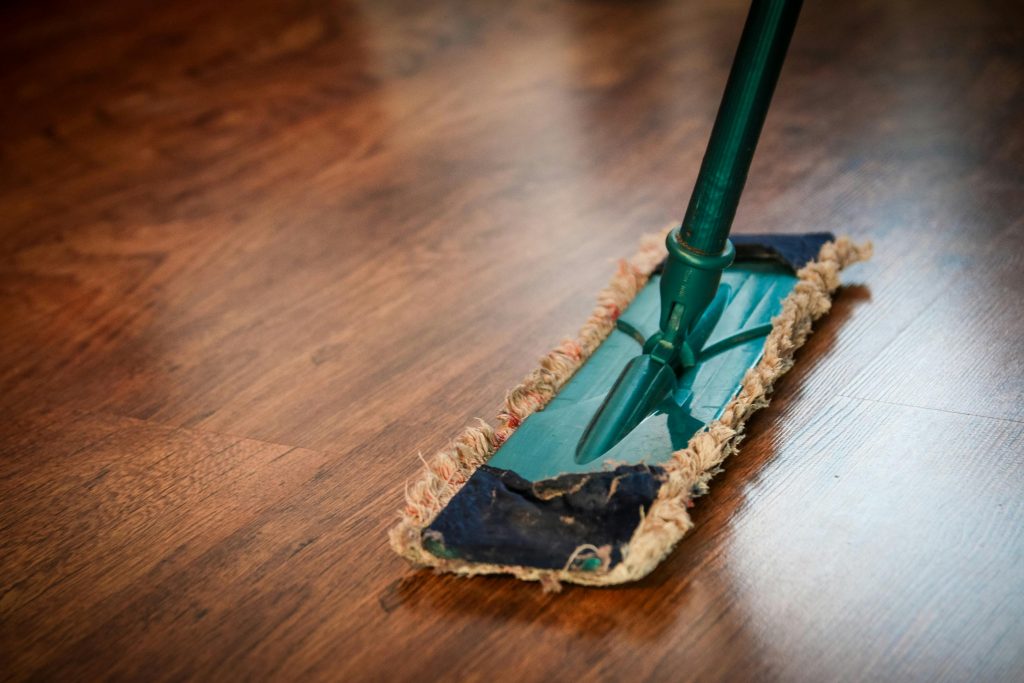Disclaimer: The insurance information provided here is for general knowledge only and does not replace advice from licensed insurance professionals. Please consult a qualified advisor for coverage decisions.
If you’re a homeowner, you might be surprised when your insurance company requests a home inspection. This is a normal part of the process for many insurers, but it often leads to one big question: Can I refuse a home insurance inspection? The short answer is yes, you technically can refuse—but it might not be in your best interest.
In this article, we’ll walk you through everything you need to know about home insurance inspections, including why they happen, your rights as a homeowner, what happens if you say no, and how to best prepare if you do agree.
What Is a Home Insurance Inspection?
A home insurance inspection is a visit from a licensed inspector who checks the condition of your home. This helps your insurance company better understand the risk they are taking on by providing you coverage.
Inspections are often required when:
- You are buying a new policy
- You are renewing your current policy
- You’ve made changes or upgrades to your home
- You live in an older or high-risk property
During the inspection, the inspector checks things like the roof, electrical system, plumbing, safety features, and more. They may also take photos of your home, both inside and out.
Can You Legally Refuse a Home Insurance Inspection?
Yes, you can legally refuse a home insurance inspection—but it’s important to understand the consequences. While no law forces you to allow an insurance inspector into your home, your insurance company has the right to respond if you deny access. Most home insurance policies include a clause that allows the company to cancel or deny coverage if they can’t inspect the property when needed. This inspection helps them confirm that your home is safe and in good condition.
If you choose to refuse the inspection, here’s what might happen:
- Your policy could be canceled or not renewed: Insurance companies rely on inspections to assess risk. If they can’t inspect your home, they might cancel your policy or decide not to renew it when it expires.
- Your premium might increase: If the insurer sees your refusal as a sign of hidden issues or higher risk, they may raise your rates to cover that potential risk.
- You could have trouble getting new coverage: If your policy is canceled or marked with a refusal to inspect, other insurance companies may be hesitant to offer you a new policy, or they may charge you more.
In short, even though you have the legal right to say no, refusing an inspection often causes more problems than it solves. It’s usually better to work with the insurance company and prepare your home for the inspection so that you can keep your coverage in place and avoid higher costs or cancellation.
Why Do Insurance Companies Require Inspections?
Insurance companies require home inspections to better understand the condition of your property and to protect both you and themselves from unexpected risks. When you apply for a home insurance policy, you provide basic details about your home—like its age, size, and condition. But a physical inspection allows the insurance company to confirm those details and spot anything you may not have noticed or reported.
Here are a few key reasons why an inspection is important to your insurer:
- Confirming your home’s condition: Insurers want to make sure your home matches the description in your application. If the inspector finds major differences, the company may adjust your coverage or premium.
- Identifying potential hazards: Inspections help spot issues like old electrical wiring, roof damage, or plumbing leaks. These problems can lead to expensive claims, so your insurer wants to know about them in advance.
- Ensuring the home meets underwriting guidelines: Every insurance company has rules about the types of homes they will cover. If your home doesn’t meet their safety or maintenance standards, they might deny or limit coverage until you make improvements.
- Recommending or requiring updates: If your roof is nearing the end of its life or your smoke detectors are outdated, the inspector might recommend repairs. Some of these changes may be required in order to keep your policy active.
In the end, the goal of a home insurance inspection is to help reduce the chances of serious damage, claims, or costly repairs. It’s a proactive step that benefits everyone involved.
What Happens If You Refuse the Inspection?
Refusing a home insurance inspection might seem like an easy way to avoid extra hassle, but it can lead to serious consequences. Insurance companies rely on inspections to make sure your home is safe and properly covered. If you say no to an inspection, your insurer may see it as a red flag and take action.
Here are a few things that could happen if you refuse:
- Cancel the Policy: If the inspection was supposed to happen shortly after your policy began and you refuse, the company might cancel your coverage completely. This is especially common for new policies where the company hasn’t had a chance to verify your home’s condition.
- Non-Renewal: If your policy is up for renewal, your insurer may choose not to renew it if you don’t allow an inspection. This means your coverage would end when the current term expires, leaving you unprotected.
- Adjust Your Premium: Without an inspection, the company may assume your home has hidden risks. As a result, they might raise your insurance premium to cover the unknowns.
- Coverage Restrictions: In some cases, your insurance company might continue to cover your home, but limit what they’ll pay for. For example, they could exclude coverage for water damage or roof leaks until they can inspect those areas.
Refusing an inspection can put your coverage at risk, cost you more money, and make it harder to get insurance elsewhere in the future. That’s why it’s usually better to allow the inspection and deal with any issues head-on.
Are There Any Exceptions?
Yes, there are a few rare situations where an insurance company might decide not to require a home inspection. These exceptions aren’t guaranteed, but they can happen under the right circumstances.
Here are some examples:
- Newly Built Homes: If your home is brand new and built according to modern building codes, the insurance company may already have enough confidence in its condition. In these cases, they might skip the inspection because the home is unlikely to have wear and tear or hidden damage.
- Strong Customer History: If you’ve been with the same insurance company for many years and have a clean record—no claims, no missed payments, and a well-maintained home—they may trust you enough to waive the inspection. A strong, positive relationship can sometimes make a difference.
- Recent Inspections on File: If your home has been inspected recently for another reason—such as a real estate sale or a previous insurance policy—and the insurer can access that report, they might accept it instead of sending out their own inspector. This saves both time and effort.
However, it’s important to remember that these exceptions are rare and completely up to the insurance company. You should never assume your home is exempt from inspection. Always ask your insurer directly, and if they agree to waive the inspection, make sure to get that decision in writing. This helps protect you in case there’s any confusion or changes in the future.
How to Handle an Inspection Request
If your insurance company asks for a home inspection, the best approach is to stay calm, be cooperative, and take some time to prepare your home. A good inspection can help you maintain coverage, possibly lower your premium, and avoid any future surprises. Here are some simple but effective steps you can take to get ready:
- Clean and Tidy the Home: While inspectors aren’t judging your housekeeping, a clean home helps them do their job more efficiently. Make sure the spaces they’ll need to inspect—like the kitchen, bathroom, utility rooms, and bedrooms—are neat and clutter-free. Clear walkways and remove anything that might block access to key areas.
- Fix Known Issues: Take a walk through your home and make a list of any minor problems you’ve been putting off. Small repairs, like fixing a dripping faucet, tightening loose handrails, or replacing cracked tiles, can make a big difference. Addressing these issues ahead of time shows that you’re maintaining the home and can help avoid red flags in the inspector’s report.
- Check Safety Devices: Make sure your smoke detectors, carbon monoxide detectors, and fire extinguishers are working and up to date. These devices are not only essential for your family’s safety but are often required by insurers. Replace old batteries and test all alarms before the inspection.
- Provide Full Access: Inspectors need to see the entire property to do a proper evaluation. That includes the attic, basement, garage, crawl space, and even outdoor structures like sheds. Unlock any doors or gates, and move anything that could be blocking the entrance to utility areas, water heaters, or electrical panels.
Being well-prepared for the inspection not only helps the process go smoothly but also creates a positive impression. It shows the insurer that you take your home’s upkeep seriously, which can work in your favor when it comes to keeping or even improving your coverage.
How to Appeal or Reschedule an Inspection
Sometimes life gets in the way, or the timing just isn’t right for a home insurance inspection. If you can’t make the scheduled inspection or need more time, don’t panic. Most insurers understand and are flexible, as long as you communicate clearly and early. Here’s what you can do:
- Request to Reschedule: If the inspection time conflicts with your schedule or you need more time to prepare, it’s best to contact the insurance company as soon as possible. Explain the situation, and they may be willing to work with you to find a more convenient time. Honesty is key here—whether it’s a personal emergency or a need for additional repairs, most insurers will appreciate the heads-up and will likely allow you to reschedule.
- Appeal an Unfair or Incorrect Inspection Report: In some cases, you may feel that the inspection was unfair or that the inspector made a mistake in their assessment. If this happens, you can:
- Request a Second Opinion or Re-Inspection: If the initial inspection didn’t seem accurate, you can ask for a second inspection. This could either be from another inspector from the same company or an independent third-party professional.
- Provide Proof of Repairs: If the inspector noted issues that you’ve already fixed, gather any receipts, photos, or documentation that show the repairs were made. Presenting this evidence to the insurer might prompt them to update their assessment and remove any penalty or cost increase associated with the problem.
- Speak with a Supervisor or Underwriter: If you’re unable to resolve the issue with the inspector or their initial report, consider asking to speak with a supervisor or underwriter at your insurance company. They have the authority to review the case and may be able to offer a solution that better reflects your home’s condition.
- Third-Party Home Inspection Reports: Some insurance companies will accept third-party inspection reports, especially if they are from licensed professionals and are recent. If you’ve had an independent home inspection done recently, submitting this report could potentially replace the need for an internal inspection by the insurer.
By being proactive, addressing concerns quickly, and communicating openly, you can work with your insurer to resolve any issues with the inspection and ensure that your home’s coverage remains in good standing.
What If You’re Renting?
If you rent your home, the inspection responsibility typically falls on the landlord or property owner. However, if you’re buying renters insurance, your insurer may still want to confirm the safety and condition of the building, especially in older properties.
Conclusion: Cooperation Is Key
While you can technically refuse a home insurance inspection, it usually isn’t the best choice. Refusing the inspection can lead to cancellations, increased premiums, or coverage restrictions. On the other hand, cooperating and preparing for the inspection can help ensure you get the best coverage and pricing for your home.
Remember, the goal of the inspection isn’t to cause problems—it’s to make sure your home is safe, secure, and protected. If you have concerns, talk openly with your insurance agent. They can walk you through the process and help you feel more comfortable about the inspection.





